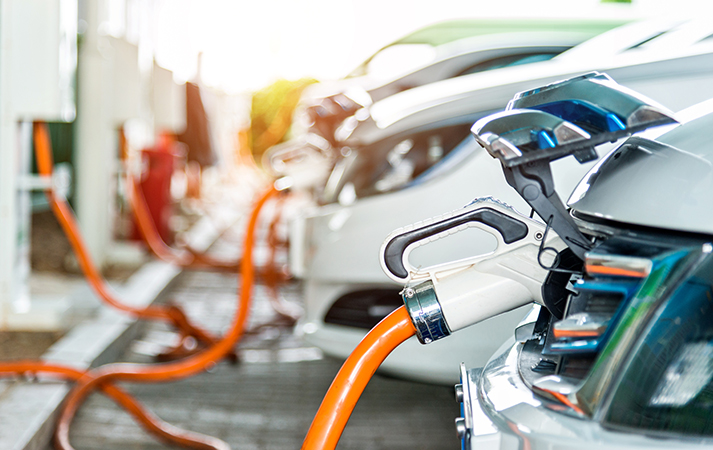It’s hard to believe that ten years have passed since London hosted the Olympic Games.
As Chair of the Olympic Delivery Authority, Sir John Armitt was charged with creating the venues, facilities and infrastructure needed for 15,000 athletes to compete at the highest level and two million spectators to safely watch them.
His designs included the London 2012 Energy Centre, which uses biomass and solar power to provide heating and cooling for the Olympic Park and Village and exports low carbon power to the national grid.
The 2012 games were a tremendous success, and the legacy of low carbon energy continues to support the facilities today.
Fast-forwarding to a few weeks ago, Sir John published the National Infrastructure Commission’s Infrastructure Progress Review 2022.
Turning his attention to the public electric vehicle charge point network that will be needed to keep an estimated ten million electric vehicles on the road by 2030, he was very clear about the scale of the challenge:
“There are now over 28,000 publicly available charge points across the country, of which around 5,000 are rapid charge points. However, there is not yet a visible core network of rapid chargers.
“There is also significant regional disparity in availability of public charge points with more provision in densely populated areas than in in rural areas.
“This is also true for on street charge points where, in 2021, there were only 1,000 on street charge points outside of London.
“Currently, over eight million households do not have access to a drive or garage to install a charge point and will require access to locally available public charge points.
“Government has demonstrated a genuine commitment to change with its target for 100 per cent electric new car and van sales by 2030.
“It has supported this with significant funding. But it does not yet have robust delivery plans and deployment of charging infrastructure is significantly behind where it needs to be.”
Almost immediately following Sir John’s report, the Government published “Taking Charge: the electric vehicle infrastructure strategy,” which made clear its ambition:
“We expect around 300,000 public chargers as a minimum by 2030. Our goal is to ensure these chargepoints are installed ahead of demand, inspiring confidence in drivers who have not yet made the switch.”
This requires a ten-fold increase in the number of public chargepoints presently available, equivalent to a sustained installation rate of approximately 2,800 charge points per month over the next eight years.
However, neither Sir John Armitt’s Infrastructure Progress Review nor the Government’s EV infrastructure strategy address the key challenge of ensuring that there is a sufficient, skilled, safe, and sustainable workforce to make it happen.
The level of collaboration and planning that went into making a success of the London 2012 Olympics, including the establishment of the London 2012 Energy Centre, is a vivid example of what can be achieved in the light of a shared vision.
Neither the exciting opportunities nor the complex challenges that the new Net Zero economy present are to be underestimated.
Electric vehicle charging for a planned 10 million cars is just one element of the national infrastructure transformation the energy sector needs to deliver this decade.
It sits alongside significant increases to low-carbon and nuclear generation, installing low-carbon heating to three million homes, and major changes to the network, to name but a few others.
This represents not only a significant challenge, but a huge opportunity, with an estimated 117, 000 roles available in the energy sector in this decade alone.
We now need to come together to develop a net zero skills action plan to ensure that we have the skills workforce we need to deliver this transformation.
A Net Zero action plan can build on the energy and utilities sector’s experience and progress, which is fully employer orientated and can deliver the competencies for the great jobs and careers that will keep the sector at the forefront of the green transition over the next 30 years.
Got ideas for electric vehicle rollout or wider infrastructure needs, or want to talk about it? – Contact our Policy & Research team.
Join the conversation on Twitter – Tag us @EUSkills and use the hashtags #EV #NetZero #GreenSkills #2025Skills
